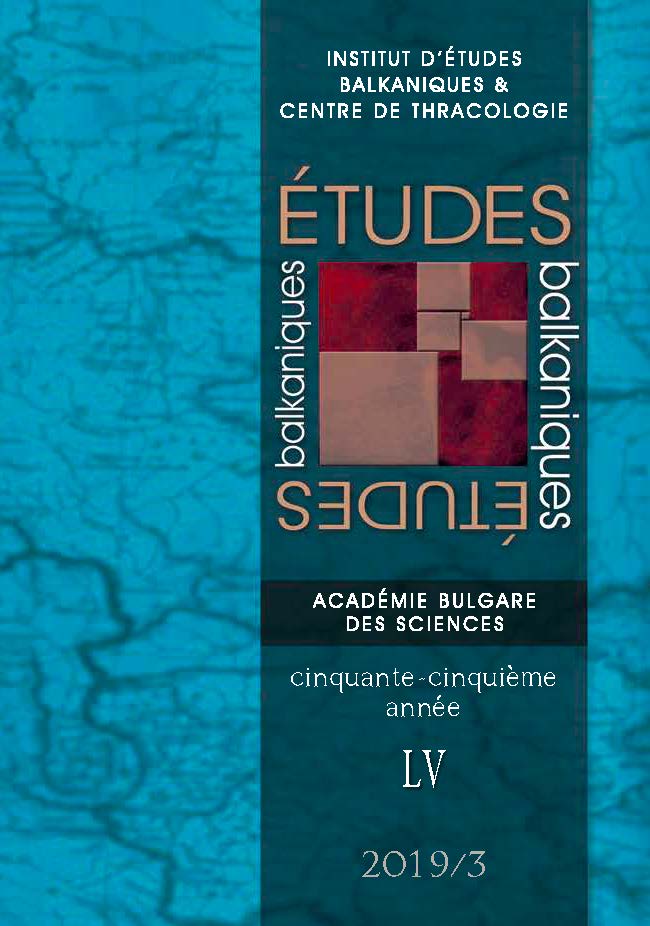LES COMMUNAUTÉS GRECQUES ORTHODOXES EN MACÉDOINE DANS LE CADRE OTTOMAN : LE CAS DE SALONIQUE, ADMINISTRATION ET ÉVOLUTION AU XIXe SIÈCLE
GREEK ORTHODOX COMMUNITIES IN MACEDONIA DURING THE OTTOMAN PERIOD: THE CASE OF THESSALONIKI, ADMINISTRATION AND EVOLUTION IN THE 19TH CENTURY
Author(s): Emilie THEMOPOULOUSubject(s): History, Economic history, Ethnohistory, Local History / Microhistory, Political history, Social history, Modern Age, Special Historiographies:, 17th Century, 18th Century, 19th Century, The Ottoman Empire
Published by: Институт за балканистика с Център по тракология - Българска академия на науките
Keywords: Greek-Orthodox Community; System of Administration; Socially and Economically Powerful Groups;
Summary/Abstract: We are examining the administration of the Greek-Orthodox community in Thessaloniki during the Ottoman period, and its evolution in the 19th century. We are observing self-governance institutions in place since the Byzantine era. Powerful Greek-Orthodox families of Salonica and the Church play an important role in the administration of the Greek-Orthodox community. By the 17th century, changes can be seen in the makeup of the community’s administration as new members from the city’s professional guilds become part of it. This development enhanced the role of secular elements in that administration. By the second half of the 18th century, the creation of a class of merchants in the Greek-Orthodox community helped it gain a leading role in the administration of its affairs. We are also examining, by relying on Ottoman documentary evidence, the districts inhabited by the Greek-Orthodox of Thessaloniki in the first half of the 19th century, and how these developed in the latter part of the century following the city’s new town plan. The changes brought about by the Ottoman authorities in the second half of the 19th century with respect to the administration of the Greek-Orthodox communities under Ottoman rule were significant. Nonetheless, socially and financially powerful groups continued to partake of the administration of the Salonica community. The participation of the Greek Orthodox (powerful financially and socially groups) in regional councils (the so-called vilayet idare meclisi) brought about changes in the relations of the Greek-Orthodox with the local representatives of the Ottoman authorities. By the end of the 19th century, these developments had led to the emergence of new socialities between communities, and new mentalities and behaviors.
Journal: Études balkaniques
- Issue Year: 2019
- Issue No: 3
- Page Range: 444-466
- Page Count: 23
- Language: French
- Content File-PDF

